There are two ways you can arrange a funeral without a funeral director.
In this article, we'll look at what a funeral director does, explore your options including direct cremation, and explain all of the arrangements that will need to be taken care of if you were to arrange a cremation without a funeral director.
A funeral director arranges funerals and supports bereaved families. Their duties include:
Using a funeral director can be expensive due to the specialist knowledge required and tasks, such as storing the deceased before the funeral. However, funeral providers like Distinct Cremations can also handle these duties with direct cremation services, offering storage and care for the deceased without a traditional funeral service.
For context, a traditional funeral with a funeral director costs on average £4,285*, while a direct cremation with Distinct Cremations starts at £1,299.
* SunLife Cost of Dying Report 2025, sunlife.co.uk/funeral-costsThere are a number of pros and cons associated with using a funeral director. A funeral director really can help with support and guidance at the time of need, but that does come at an expense and that's why simple funerals are becoming much more of an attractive option.
Using a funeral director |
Organising yourself |
Using Distinct Cremations |
|---|---|---|
| Average cost of a funeral with a funeral director is £4,285** | DIY funeral costs can be kept low by sourcing and coordinating everything yourself | The cost of a no fuss funeral with Distinct Cremations starts at £1,299 |
| On the day of the funeral, the funeral director will be there to make sure things run smoothly and will lead the procession | You will have to book the venue of the funeral yourself and arrange transportation of the deceased to the crematorium or cemetery | We will book the crematorium and arrange transportation, and with a direct cremation no service organisation will be needed |
| A funeral director will help provide guidance on funeral options, floral tributes and arranging a memorial service | Without a funeral director, the family has the freedom and flexibility to organise a funeral exactly how they would like | Our funeral team will provide guidance on funeral options and give you the flexibility to organise the funeral your way |
| Administrative duties will be adhered to, such as the organisation of the transportation and requests from the cemetery or crematorium | A funeral organised can be more of a family affair where relatives can be pallbearers, but all administrative duties will have to be done by the family | We will take care of the administrative duties, organisation and we will help with the legal paperwork that needs to be completed |
| Legal requirements and death notices will be managed by a funeral director on behalf of the family | The family can create their own funeral notice but they will have to do the legal paperwork by themselves | We can offer guidance on the legal requirements and give you guidance how to manage your own funeral notice |
** SunLife Cost of Dying Report 2025, sunlife.co.uk/funeral-costs
Arranging a funeral yourself requires careful thought and preparation. Here are some questions to ask yourself to ensure you're making an informed decision:
For those who want to reduce the costs of using a traditional funeral director but still need some assistance, involving a funeral provider might be ideal. The provider can help manage certain aspects, like transportation and paperwork, while you handle the more personal elements.
There are a few different roles that will need to be fulfilled if you are planning on taking on the responsibility of arranging a cremation yourself. If you are arranging a burial, the process will change somewhat.
Here are the six things you'll need to do:
1. Arrange care for the deceased
If your loved one dies in a care home or at a hospital, it’s likely that they’ll have the facilities to care for the deceased until the funeral provider arrives. If you’re arranging the cremation yourself without the support of a funeral provider, they may be able to care for the deceased until the day of the service but you'll have to check with them directly.
If a person passes away at home, you’ll need to phone an ambulance or your doctor so that a death certificate can be provided. You’ll also need to make arrangements to care for the deceased until the funeral. If you choose to involve a funeral provider, they can handle care arrangements for you.
2. Register the death of the deceased
You’ll need to officially register the death within five days in England and Wales, or within eight days in Scotland. In order to register the death, you’ll need to have a signed medical death certificate from a doctor.
This is a really important step as you won’t be able to make any funeral arrangements until the death has been registered. Once the death has been registered, you’ll receive the documentation you need in order to proceed with the cremation.
If you need more information or assistance with registering a death, visit the government websites for England and Wales or Scotland depending on where you are.
3. Choose a funeral provider
If you wish to arrange a funeral without using a funeral director, a funeral provider offers a cost-effective alternative. A funeral provider differs from a funeral director in that they handle specific services like storage, transportation, and cremation without offering the full suite of traditional funeral services. Here’s how to proceed:
- When to contact: after obtaining the death certificate and registering the death, you should contact a funeral provider. They will guide you through the next steps and arrange care for the deceased.
- Responsibilities: the funeral provider will handle the collection of the deceased from the place of death, transport them to their facilities, and prepare them for cremation. They will also assist with all necessary legal documentation.
Using a funeral provider provides more help than handling everything yourself, but is cheaper than hiring a full-service funeral director. It serves as a middle ground, offering essential services while allowing you to manage and personalise other aspects of the funeral or memorial service.
4. Decide on coffin or shroud and urn
For the cremation, you’ll need to decide on a coffin for the deceased to rest in. Coffins can be as complex or simple as your budget and preference allows. Today, coffins can be made from anything from cardboard and wicker to traditional oak. The cheapest coffin will cost around £199 for a cardboard coffin.
However, if you don’t wish to use a coffin, some crematoria do allow the deceased to be cremated in a simple shroud. If you do wish to go ahead with a shrouded cremation, you’ll need to arrange and agree this in advance with your chosen crematorium.
You can also choose an urn to house your loved one’s ashes after the cremation has taken place. If you choose to involve a funeral director, they can help assist with coffin and urn options.
6. Choose and book a crematorium
If you choose not to involve a funeral director, research local crematoria and contact them to understand their services and fees. Cremation fees typically range from £300 to £750 depending on location and service type.
To finalise the booking, you’ll need to complete a few final pieces of paperwork. The chapel attendants and crematorium staff may be able to help you with this. You can also discuss additional needs like the service order, number of attendees, funeral date and time, and arrangements for music and readings with the crematorium.
If you choose to involve a funeral director, they will take care of all arrangements, including choosing and booking the crematorium. They will handle all communication and paperwork with the crematorium.
This option provides a hands-off approach, where the funeral director ensures that all necessary arrangements are made according to your wishes.
6. Transport of the deceased
If you choose not to involve a funeral director, you’ll need to arrange transport for the deceased to the crematorium. While bodies are traditionally transported in specialist hearses, you can transport them in any suitable vehicle - this could be a car, a van, a private ambulance, or even on the back of a motorbike.
Choosing something personal can be especially poignant if the deceased was well known for their association with a certain vehicle during their life. But bear in mind the cost will be higher for something a little quirkier.
If you choose to involve a funeral director, they will handle transportation of the deceased for you.
7. Organise the funeral service
Although most funerals are steeped in tradition, they don’t have to be. If you don’t feel certain elements of a traditional funeral would be right, you don’t have to include them. The funeral can be as personal as you want it to be, only including the things you feel are important to the deceased and their loved ones.
For instance, a simple direct cremation separates the act of cremation from the funeral. There is no procession, viewing, or ceremony at the crematorium, letting you say goodbye when you’re ready. After the cremation, you have the flexibility to hold a memorial service or celebration of life at a time and place that is meaningful to you and your family. This can be a simple gathering at home, a favourite location, or a hired venue.
If you do wish to have a funeral, you’ll need to decide who’ll lead the service. You can choose to lead it yourself along with family and friends or ask an independent funeral celebrant or religious leader to lead it.
If you're taking care of the funeral arrangements yourself, it's likely that you'll be opting for something a little bit more simple than a traditional funeral, and there are benefits to that.
Choosing a simple funeral or a unattended funeral instead of a traditional funeral lets you celebrate a loved one’s life however you wish, with less stress and no fuss.
You can see the key differences between a simple funeral and a traditional funeral in more detail below.

The contemporary, simple, fuss-free farewell, free of tradition
⊛ 69% saving is based on the cost of a basic funeral at £4,285 (SunLife Cost of Dying Report 2025, sunlife.co.uk/ funeral-costs) vs the cost of a Distinct Cremations direct cremation at £1,299.
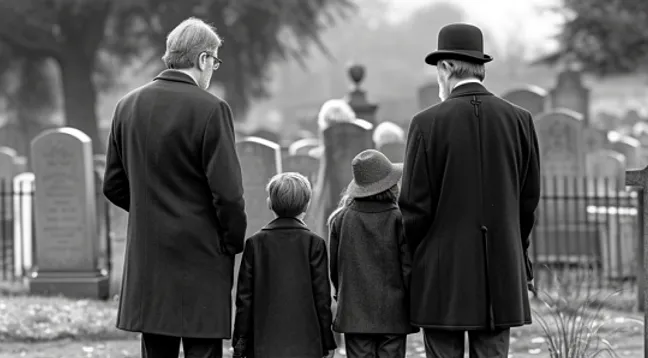
A fixed format funeral, with a set service
Whether you're wanting to arrange a funeral today, planning for the future with a prepaid funeral plan, or looking for something else, our customer service specialists are here for you 24/7 to answer any questions you may have.
Ask a question today or call us on 01543212000.
Ask a questionThough it can be done, it does take a lot of effort to arrange a funeral yourself and it isn't always the cheaper option.
Here at Distinct Cremations, our direct cremation starts from just £1,299 and we take care of all the arrangements. From arranging the funeral to making sure all your paperwork has been filled in correctly. From the collection of the deceased, right through to the hand-delivery or scattering of the ashes. And everything in between.
With expert guidance on-hand 24 hours a day, 7 days a week, our customer service and funeral teams at Distinct Cremations will help with all your funeral arrangements as you need them, when you need them.
Funeral planning is never an easy task, but our team can help ease the load.
We’re here for you 24/7. You can call us on 0808 134 5865 before a passing to give you and your loved ones time to prepare or you can call us when the time comes. All we need from you is some basic information to start getting your cremation arrangements in place.

Our caring team will collect the deceased from anywhere in the mainland UK, whether your loved one is at home, in a care home or at a hospital. The deceased will be then taken to our professional mortuary facilities before cremation.
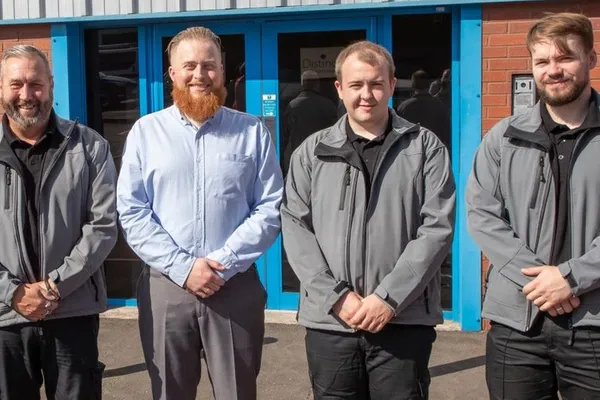
We will prepare your loved one for cremation, bathe them, remove any artificial items and dress your loved one upon request. We will then lay them to rest in the coffin, transport them to the crematorium and we will inform you of the date of cremation.
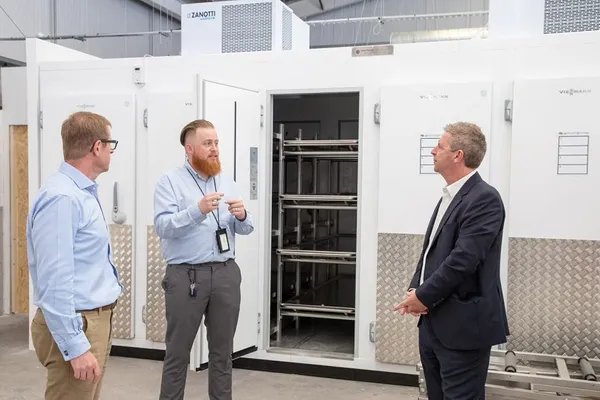
The cremation will take place at one of our 41 crematoriums in the UK. The coffin is taken through the front door, rested on the catafalque while a song of your choice is played or a moment of silence is respected, then the cremation takes place.
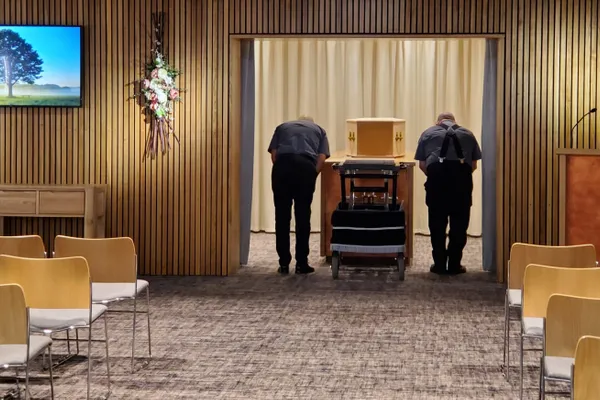
The ashes will be hand-delivered back to you within 14 days or scattered in the garden of remembrance upon request. You may then like to arrange a memorial service to commemorate the life of your loved one.
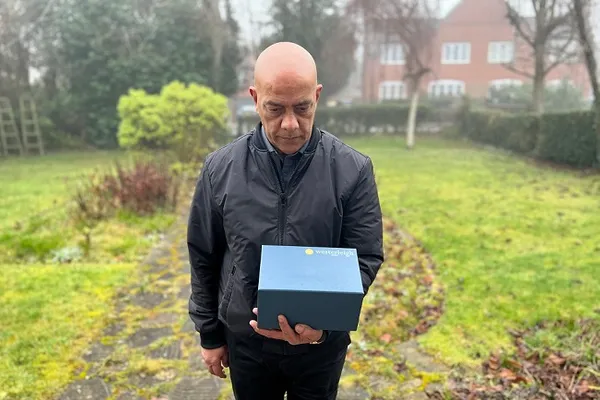
Below are a few further articles that you may be interested in.

At Distinct Cremations, we provide non traditional funerals which are simple to arrange, affordable and delivered with care, dignity and respect. Prices start from just £1,299 if you need to arrange a funeral today.
Arrange a funeral
Alternatives to a traditional funeral have become much more popular in recent years. In this article we outline the different options available and why people are opting for something a little bit different.
Alternatives to a traditional funeralWe offer the highest level of support, but don't just take our word for it. Below are recent reviews from customers who bought a funeral with us.






Let our caring team assist you in arranging a funeral for your loved one, without the involvement of a traditional funeral director.
Call us on 01543 211997